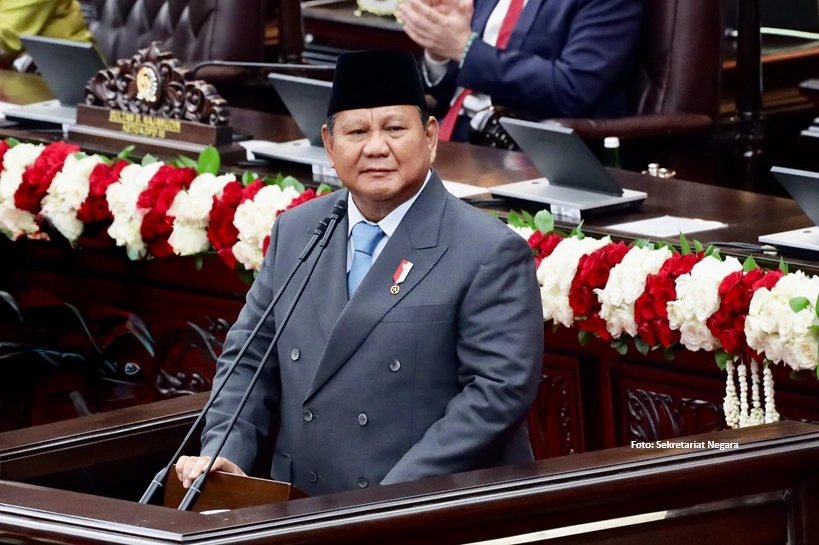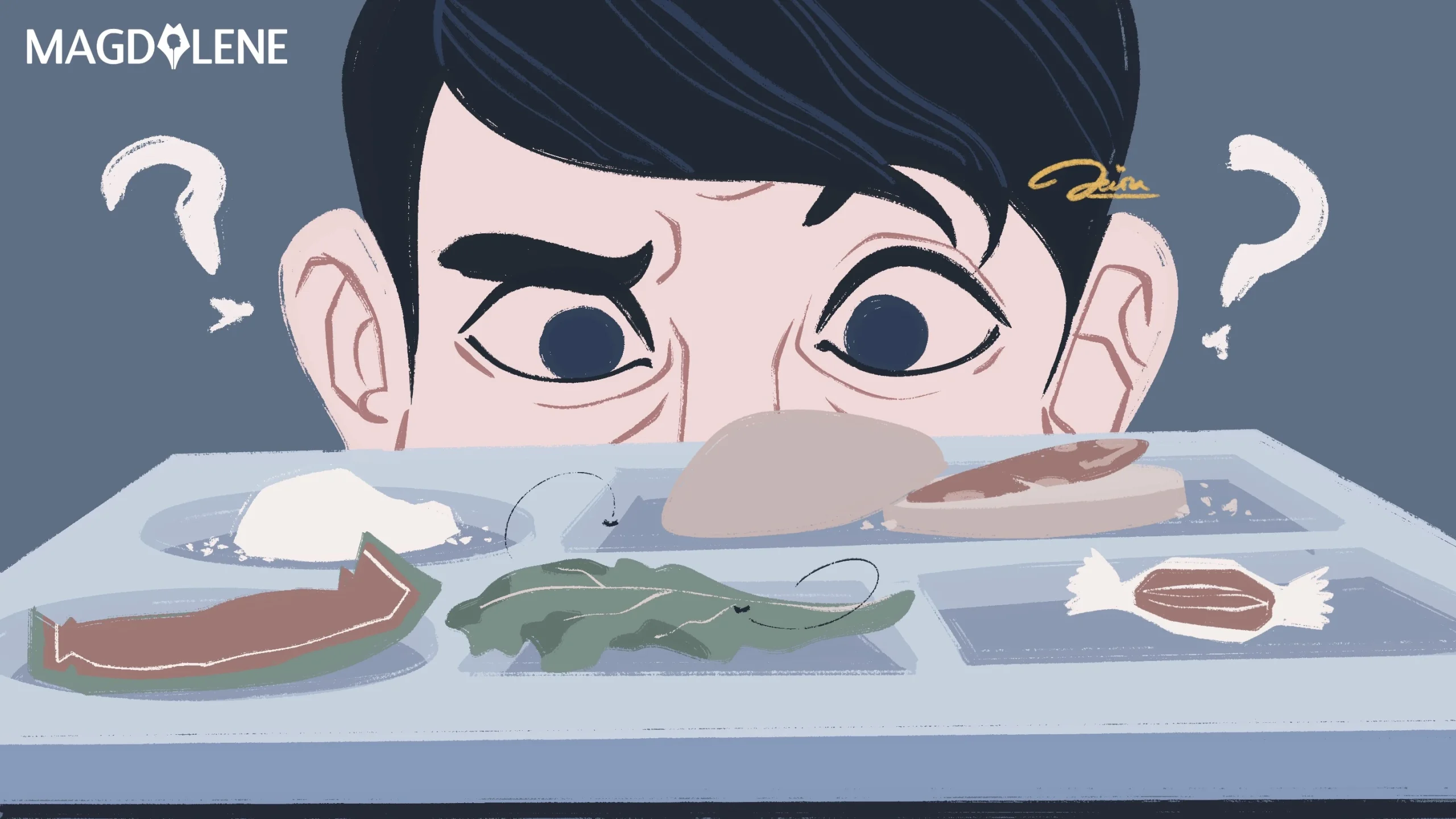Good Communication: Key to Sex Education for Children

“Mom, what is a wet dream?”
“My friend talks about ‘porn’, what does it mean?”
In Indonesia, children don’t usually get proper answers when they ask about sexuality. Parents either avoid the questions, or they freak out or become angry, thinking this kind of questions is inappropriate to discuss. While embarrassment might be a factor, inadequate knowledge is often the cause of parents’ reluctance to talk about sexuality to children, especially to those who were never taught by their own parents.
A recent discussion attempted to break the taboo when it comes educating young children on sexuality. Featuring actress Mona Ratuliu (Mona) and Child Psychologist Nirmala Ika Kusumaningrum (Ika), the discussion highlighted good communication as the most important aspect when it comes to sex talks with children.
Ika pointed out that every response and reaction is important when it comes to children: “For instance, when your son told you that he just watched porn with his friends for the very first time, the common reaction would be anger: ‘You’re grounded! I can’t believe you watched that! I’m not allowing you to play with that friends of yours anymore’.”
“But note that if you do that, it will only make your kids more secretive. You’re discouraging them from telling you about their experiences as they are afraid that you will scold them again,” she said.
The key is to stay calm and keep the conversation going without overreacting.
“Instead of getting angry, you should start digging for information and explanation. Just take a deep breath, stay composed and ask some follow-up questions such as, ‘How did you guys end up watching that?’, ‘Where did you watch it?’, ‘Who initially had the idea?’, ‘Well, I believe kids shouldn’t be watching it as it is made for adults, what do you think?’. That way, you encourage them to be open and to keep sharing their experiences to you as you think through your next step,” she said.
When it comes to intimate relationship, Mona, who is a mother of two, asked Ika whether parents displaying affection in front of kids is actually good thing.
“I would say that my husband and I have been very expressive in terms of showing love. We kiss and say ‘I love you’ to each other all the time. Is it actually appropriate to do that in front of the children? Or is it rather a bad influence?” she asked.
Ika said that it is indeed necessary to show affection in front of the children: “It’s important because it is a way to show children that they live in a loving and harmonious environment. Parents loving each other is good for children’s mental well-being. It will also help children grasp the idea of how a good relationship should look like. Hence, it may keep them away from toxic relationship.”
Mona admitted that sometimes she found it challenging to give concise answers where her kids’ asked questions about sex, “I actually haven’t found the right words to explain ‘wet dream’ to my son.”
Ika said that at times parents don’t need to go through every detail as long as the essentials are covered.
“Tell your son that his body is growing, his organs are developing, and ‘wet dream’ is a sign that he is growing well. Remind him that the most important thing now is to take care of his hygiene. So if he experiences it again, he should immediately clean up and wash up. That would be sufficient,” she said.
Mona also said that because she didn’t always have the answers ready when it comes to sex talks, she would delay the talk to be more prepared. Ika responded that postponing is not a bad idea as long as the question is eventually answered.
“Postponing one to two days would be okay. But, we want our children to hear it first from us. We don’t want them to get the information from unreliable sources,” said Ika.
Gadget and LGBT
The talk focused on how technology has been a challenge for parents, as they cannot be a hundred percent in control of their kids’ activity online.
“We cannot always monitor our children, wherever they go or whatever they see or read. But what we can do is providing them with proper knowledge and understanding so that they can make their own decision wisely,” Ika said.
Specifically to toddlers, gadget also potentially hinder their communication ability, so it’s best to limit its use. Gadget is favorable to children as it keeps them entertained, and at the same time it also helps parents to relax or do their work.
“However, I recommend not to introduce gadget to kids until they are at least two years old,” Ika said.
The first five years is a child’s “golden age,” she said. It is the time when children should exclusively learn to interact with others.
“Get them to talk as much as possible with the parents, family, neighbors, and friends. If they missed this opportunity, they may not be able to speak well as soon as they should, and they will have difficulties communicating with others in the future,” Ika said, adding, “I know it impossible to prohibit children from playing gadget, so I’m recommending limiting the time of use.”
Asked by the audience about how parents should react to LGBT issue, Mona and Ika explains that it should not be the parents’ main concern. What’s more important is to not fall into the trap of strict gender roles in the household.
“I never try to limit my child’s activity to only fulfill a certain role in the family,” said Mona. “My husband helps out a lot in the house. We don’t believe in the rule that women belong in the kitchen, while men aren’t even allowed to cook his own fried egg. We believe that everybody should try to be as helpful as possible in the family. I actually witnessed my son picked up the idea. He’s been very thoughtful about his little sister’s needs.”
Ika, on the other hand, emphasized more on how to protect children from harassment.
“Yes, people are currently striving for gender diversity. However, instead of worrying about same-sex marriage, which is unlikely to happen any time soon here, we should focus more on how to protect our children from sexual predators. We can start by telling them which parts of their body aren’t allowed to be touched by anybody else other than themselves, or their parents, if they still need help in the bathroom, or doctors, when they need to do medical check-up, for instance. We need to teach them to be cautious, such as in what kind of situation they are required to say ‘no’, to defend themselves, or to run,” Ika explained.
Mona and Ika concluded the discussion by saying that sex education is indeed very important. Both might share their stories and expertise, but actually only parents know the best ways to handle their kids, based on their age and personality.
“Most importantly, keep in mind that thinking of sex education as taboo or embarrassing will only result in negative impacts,” Ika said.
Find out how this movie explores a child’s world as she deals with loss.






















